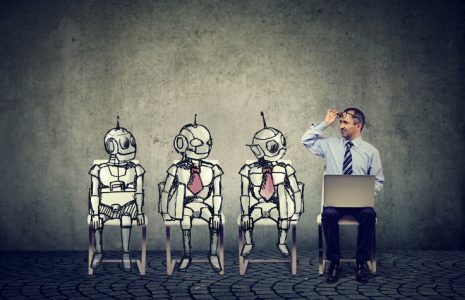

News
HR Technology
Canadian executives anticipate significant workforce reskilling, shifting staff expectations as they adopt AI: IBM
August 23, 2023
By
Talent Canada
 Photo: Getty Images
Photo: Getty Images Nearly half (42%) of the Canadian workforce will need to be reskilled as employers adopt generative AI in their business over the next three years, according to a study of senior leaders.
The new study by the IBM Institute for Business Value has shed light on the challenges and opportunities employers are facing as they look to integrate artificial intelligence (AI) and automation into their workforce.
The study, Augmented Work for an Automated, AI-Driven World, surveyed 3,000 global C-suite executives across 20 industries and 28 countries. It highlighted the continuing struggle with significant labour shortages, with AI seen as a potential solution to this problem.
“Canada continues to face serious workforce shortages and AI is our best opportunity to tackle this challenge as we reimagine how work gets done,” said Dave McCann, president of IBM Canada. “Taking these steps now in Canada is critical to ensure our industries and organizations maintain leadership and are not left behind.”
Among the key findings:
- Technology illiteracy was ranked as a top talent issue by Canadian executives, second only to global executives.
- 58% of Canadian executives are focusing on internal reskilling rather than external hiring (43%).
- People skills, including time management and the ability to prioritize (44%), along with analytics skills with business acumen (41%) and ethics and integrity (39%), are considered highly valuable.
The study also provided recommendations for leaders aiming to transition into an AI-driven work environment successfully. These included:
Putting skills at the forefront of workforce strategy: Developing a broad foundation of technical knowledge to enable employees to work creatively and responsibly with AI.
Investing as much in talent as in technology: Preparing the workforce for AI and technological disruption by redefining work roles, identifying critical skills for the future, and shifting people into new roles.
Redesigning the work and operating model: Identifying areas where AI can take over repetitive tasks, thereby freeing employees for higher value work.
Emphasizing the importance of employee engagement: Using AI to automate repetitive tasks and create more fulfilling job roles and career paths, putting employees in the driver’s seat of their professional development.
An example of this transformation is IBM’s own HR team, which automated the data-intensive quarterly promotions process with a custom Watson Orchestrate solution. This enabled staff to focus on more valuable tasks.
Print this page